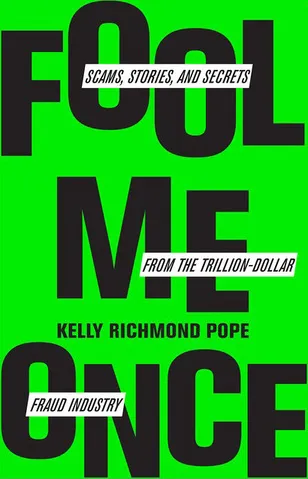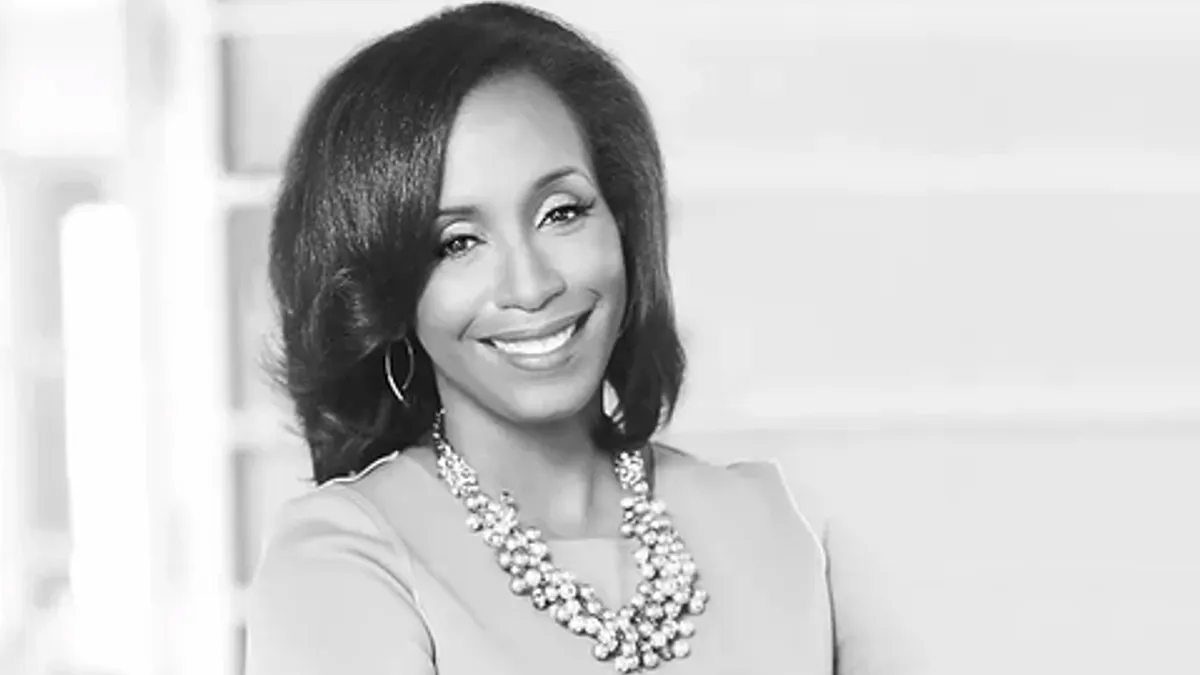Kelly Richmond Pope is a professor at DePaul University in Chicago who specializes in forensic accounting, an author, a documentary filmmaker and a CPA. In 2017 she directed and produced “All the Queen’s Horses,” an award-winning documentary about the former comptroller of the City of Dixon, Ill. who pleaded guilty in 2012 to wire fraud in connection with stealing more than $53 million from the city and using some of the proceeds to finance her quarter horse farming business.
Pope spoke with CFO Dive this week about her new book, “Fool Me Once: Scams, Stories, and Secrets from the Trillion-Dollar Fraud Industry.” It examines the perpetrators and victims behind financial crime. Pope asserts CFOs need to understand the motivations of the various archetypes that commit fraud in order to put the proper controls in place to thwart them.
The book will be released next month by Harvard Business Review Press.
The following is a Q&A between Pope and CFO Dive’s Maura Webber Sadovi. Remarks have been edited for clarity.
CFO Dive: How did you decide to get into accounting?
Kelly Richmond Pope: I took my first accounting class in ninth grade and I realized then that the person that understands the money is the most powerful person in the room. If I were ever to be in an organization, I only wanted to be a CFO because even the CEO has got to ask the CFO, ‘can we do it.’ So that’s your power play, that’s your superpower. I decided to follow the higher education route so I didn’t become one. But in my head I am one.
CFO Dive: What made you decide to write this book?
Kelly Richmond Pope: I am first and foremost an educator, an accounting educator and I started years ago interviewing white-collar felons, victims of fraud and whistle blowers with the intention of showing learners the missteps and pitfalls that any one of us can make. And I started that because I was concerned that people tend to look at white collar offenders as a “them” category and not an “us” category and that allows you to put some distance between what that person has done and never see yourself as being faced with some of those same challenges. So I wanted to use real stories and real people as a way of educating people.

CFO Dive: What audience did you have in mind?
Kelly Richmond Pope: I definitely see my audience as professionals. I think when you have an empathetic understanding of how fraud happens to individuals and in an organization it gives you insight into the kinds of training and internal controls you need. I think one of the problems that happens in organizations is there’s a code of conduct and it’s a check the box kind of experience. But there’s an emotional connection that people have to make to the scenarios that busy financial executives deal with. Every executive, I believe, has sat in a room, in a meeting or on a zoom where there was a questionable choice that could have been made.
CFO Dive: In the book you examine three different types of fraud perpetrators: the intentional, the accidental and the righteous. Which type should CFOs be most concerned about?
Kelly Richmond Pope: It would be accidental perpetrators. A lot of times they are trying to please the needs of their CEO, COO or a board. Research has shown when controllers and CFOs engage in fraudulent behavior it’s often from peer pressure from other financial executives. You want to report out that, ‘yes I made the numbers work,’ or ‘yes the financials are intact for this quarter.’ Wanting to be praised leads you to being an accidental perpetrator.
CFO Dive: What is a good example from the book of accidental fraud?
Kelly Richmond Pope:The story of Andy Johnson really stuck with me because he was just a great accountant, a solid CPA. But he was tasked with trying to explain to people who weren’t interested in hearing about the numbers why they have to adhere to generally accepted accounting principles and why it’s important. His story stuck out to me because although he engaged in what we would consider earnings management, he didn’t do it for personal gain but yet he did go to prison and so his life was ruined because of his desire to meet the objectives and needs of other people.
CFO Dive: What were the circumstances of that fraud?
Kelly Richmond Pope:He worked for Nicor Energy. The senior leadership was sales focused, their background was marketing and sales even though they were the C-suite executives. Because it was an energy company, because of the fluctuation in gas prices…he spread out a loss over several periods as opposed to recognizing a loss as soon as he knew it. So that was misleading to investors. You’re not supposed to do this but when times are good you can spread a loss if you’re still acquiring customers and your sales are increasing then you can absorb that loss and spread that loss over several periods. But when happened is they slowed down, they stopped acquiring as many customers and they could no longer spread that loss and the auditors figured it out.
CFO Dive: What kind of controls can a CFO set up to catch accidental fraud?
Kelly Richmond Pope: I think there should be some type of reporting mechanism for a CFO and that might be a direct communication with the audit committee. They need to feel comfortable sharing when they feel like they’re in a tight situation. On paper companies, especially publicly traded companies, have it. The question is, does it work?






















